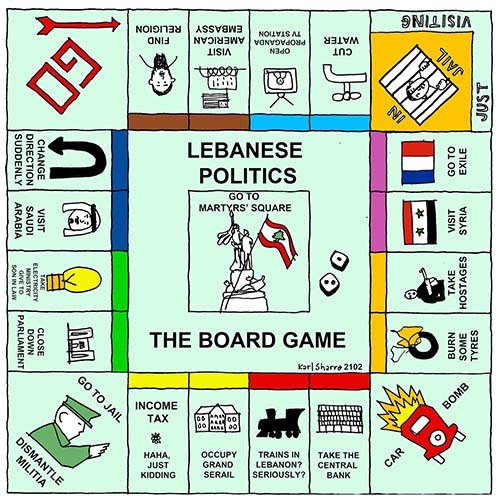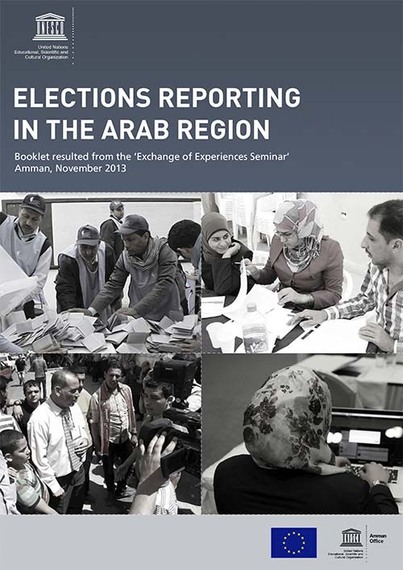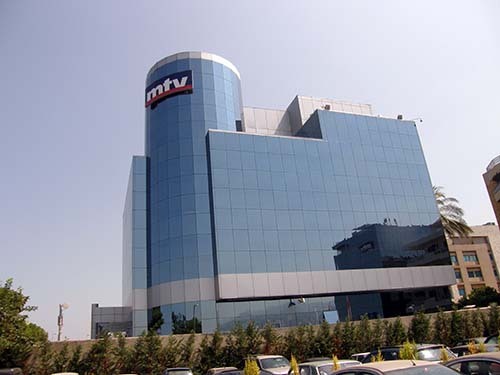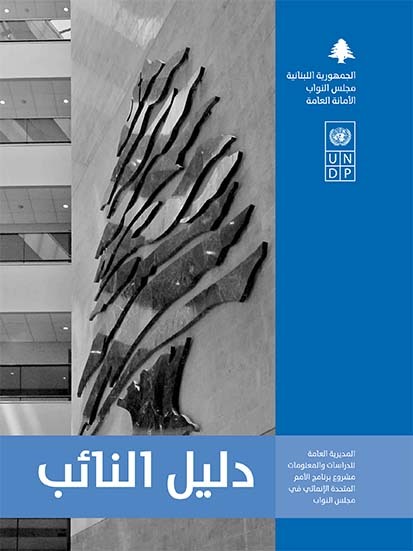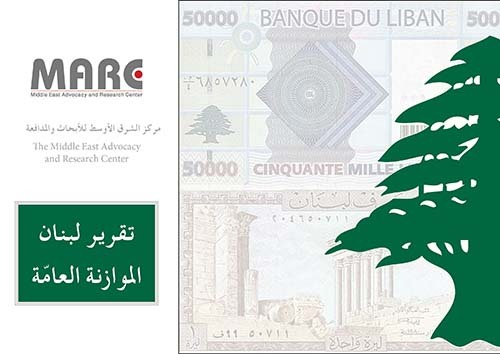Lebanese politics is a game architect-cum-satirist Karl Sharro (a.k.a. Karl reMarks) best illustrated and produced on a Monopoly-style board.
Lebanese-Iraqi Sharro's scathing comments and biting humor came to mind when I wrote about the media's mixed bag coverage of Lebanon's presidential, parliamentary and municipal elections for a just-released UNESCO publication.
The coverage ranges from fairly professional accounts of events, accompanied by increasingly advanced technological renditions such as multimedia presentations of voting procedures and poll results, to mediocre reporting verging on outright editorializing, sectarian mud-slinging, sub-standard articles, skewed videos and questionable online content.
Given the loaded legacy of a 15-year civil war and interminable domestic upheaval in Lebanon, influenced by regional and international disturbances, it is no surprise that news coverage of Lebanese elections has been, and continues to be, adversely affected.
Media have been fined or shut down and journalists harassed for violating regulations on how or when to cover elections.
A case in point is MTV-Lebanon, which fell afoul of the law in 2002.
According to Lebanon's electoral law at the time, media were barred from publishing or broadcasting campaign fare for a specified period prior to the vote and faced indefinite closure if they veered off course.
MTV reopened in 2009 but the incident left a bitter after taste.
Lebanon's newly formed cabinet following the assassination of then prime minister Rafic Hariri on February 14, 2005 and a popular uprising dubbed the "Beirut Spring," took an unprecedented step to form the National Commission on Parliamentary Electoral Law that year, after nailing a vote of confidence.
The Commission drew up a draft law aimed at securing fair representation of the Lebanese people within the country's democratic parliamentary framework, under the umbrella of the Taef Agreement that ended the 1975-90 civil war.
But the draft did not fully annul the country's entrenched political sectarianism.
According to the Commission, a clause regarding media and advertising stipulates:
The draft law also includes many provisions for advertising regulation of private audio-visual media, securing the freedom of expression for all trends of thought and opinion in the programs of the said media. The Independent Commission shall have the power to give binding directives and instructions that it deems necessary in this regard, in order to secure justice and balance between the candidate and his/her competitors, and impartiality towards candidates/lists.
The gobbledygook clause was aimed specifically at private media outlets since state-run radio and television are automatically constrained by government regulations.
In its first report on the electoral campaign, the Commission detected various infractions in print and broadcast media.
It found violations in content that did not comply with the existing electoral law barring hate speech, libel and slander.
But where does one draw the line between laws to protect citizens and free media guaranteed by a democratic system of government that uncovers electoral wrongdoing?
The media should allow voters to learn about the electoral process and political choices available to them.
For the media to be free, they should have a free hand to probe into the transparency of the elections, and to inform voters about inconsistencies and errors so that such mistakes are corrected.
The media should also evaluate the work of the government and opposition parties during the pre-election period.
Citizens should be informed about the government's record in running the country in previous elections as well as the opposition parties' alternative programs.
Another basic requirement for the media is to know what a legislator's role is and explain it to voters.
Unfortunately, many members of parliament (MPs) in Lebanon are not fully familiar with their duties and have not studied the legislator's manual.
Many journalists are also totally ignorant of what an MP does, which is a disservice to the public.
An important issue in covering campaigns is familiarity with financial matters before, during, and after the elections and how public funds are spent.
It is also imperative to understand how the government's budget is drawn based on public expenditures and revenues.
The media can highlight weak practices by focusing on warped priorities, reduced productivity, extra-legal procedures and corruption within official ranks.
Good coverage of elections should include: An historical overview of issues, how the issues were handled in the past and candidates' positions on them, as well as a review of political parties' and blocs' positions on the issues.
The media's role is to observe the electoral process, explain it, report on whether laws were respected, and whether there was any cheating, bias towards one person or group, or offenses directed at voters.
Above all, the media should be accurate, fair, balanced and responsible.
This is a summary of an article by the author in a UNESCO publication, "Elections Reporting in the Arab Region," resulting from an experts meeting in Amman, Jordan.

